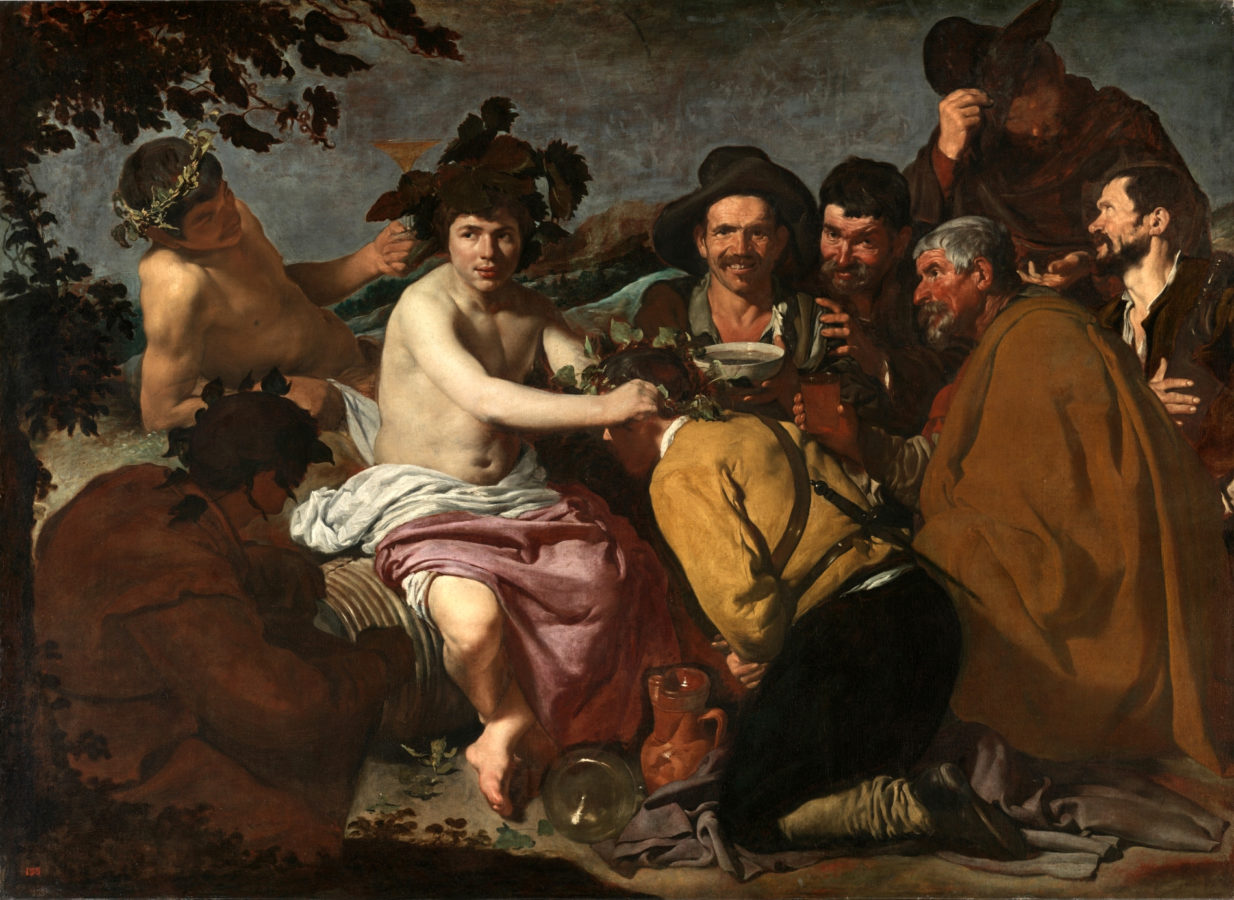Velázquez, The Triumph of Bacchus, 1629
It is appropriate to begin from the feature of wine that has been most absurd: its ability to intoxicate. What exactly is intoxication? Is there a single phenomenon that is denoted by this word? Is the intoxication induced by wine an instance of the same general condition as the intoxication induced by whisky, say or that induced by cannabis? And is 'induced' the right word in any or all of the familiar cases? Why all this fuss about wine? Is there something about wine that removes it altogether from the class of drugs, as Chesterton once suggested, when he wrote that "the dipsomaniac and the abstainer are not only both mistaken, but they both make the same mistake. They regard wine as a drug and not a drink"? It would be strange if Chesterton, who was right about most things, were wrong about wine.
The social drinking of wine, during or after a meal, and in full cognizance of its delicate taste and evocative aura, seldom leads to drunkenness, and yet more seldom to loutish behavior. The drink problem that we witness in British cities stems from our inability to pay Bacchus his due. Thanks to cultural impoverishment, young people no longer have a repertoire of songs, poems, arguments or ideas with which to entertain one another in their cups. They drink to fill the moral vacuum generated by their culture, and while we are familiar with the adverse effect of drink on an empty stomach, we are now witnessing the far worse effect of drink on an empty mind.
This is the difference between a genuinely cultivated mind and one that only aspires to be. The genuinely cultivated mind knows when to remain silent. This is one of the uses of the Greek symposium. It imposes on everybody around the table the obligation to be silent while one of them speaks. And that way when you speak it becomes seriously meaningful.
Sir Roger Scruton, from I Drink Therefore I Am.
CONNECT












































































































































































No comments:
Post a Comment